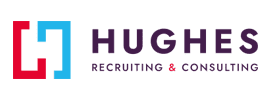Avoid These 16 Deadly Resume Mistakes That Could Cost You the Job!
Your resume is the first thing an employer sees about you, and if it’s not good, it might quickly get you a “no.” In today’s tough job market, even one small mistake in your resume writing could mean you don’t get an interview. That’s why it’s important to know what should not be included in a CV. Avoiding these mistakes can help you stand out and increase your chances of getting called for an interview.
16 Items that Should Not Go into a Resume
Did you know that, based on resume.io, 20 percent of recruiters decide not to consider a candidate before they even finish reading the resume? ¹ Here are common resume mistakes that can make them uninterested:
1. Too Many Words
Your resume should list your work experience, skills, and education. Instead of writing big blocks of text, break your information into sections and use bullet points. This helps recruiters quickly see if you have the right qualifications for the job you’re applying for. You can explain more during the interview.
2. Personal Information
Adding extra personal details such as your age, ethnicity, marital status, sexual orientation, or religious beliefs is not required. In some places, these details could cause unconscious bias or even discrimination.
Your resume should have only the basic contact information like your name, phone number, and email. Keep your resume professional by focusing on what’s relevant: your experience and qualifications.
3. Photos
It’s usually best not to include a photo on your resume. Statistics from resume.io also show that resumes with a photo were 88 percent more likely to be rejected than those without.
While there are exceptions in certain countries or industries where a photo might be expected, like in the entertainment industry, for most professional jobs, leaving out a photo is the safer choice. Hiring managers want to see technical or soft skills and achievements, not your picture.
4. Lies or Exaggerations
Did you know that 75 percent of hiring managers have caught a lie on a resume? It’s best to just be honest. Your resume is a key professional document, and being truthful is essential. If you exaggerate your skills, experiences, or education, and someone finds out, it could hurt your professional reputation and your chances for future jobs.
Always give an accurate description of what you can do and what you’ve done. This way, you can talk about your skills confidently in interviews. Being honest makes you look trustworthy and makes sure you’re considered for jobs that truly fit your abilities.
5. Spelling and Punctuation Errors
It’s crucial to proofread your resume very carefully. Read it over several times yourself, focusing on grammar, spelling, and punctuation. Typos and grammatical errors on a resume are big red flags. They show carelessness and unprofessionalism, which are traits that do not impress potential employers.
Don’t just rely on spell-checking software, as it might not catch every mistake. Also, ask a trusted friend, family member, or colleague to review your resume. Their fresh eyes can spot any mistakes you might have missed, helping to make sure your resume is polished and free of errors.
6. Descriptions in Passive Voice
Using passive voice in your resume can make it sound boring and unexciting. It also makes your accomplishments seem less impressive. Instead, use an active voice to take charge of your story.
Using strong action verbs throughout your resume will make it more interesting and show the value you offer. For example, instead of saying, “Responsibilities were handled,” say, “Handled all customer service inquiries with a 95 percent satisfaction rate.”
Active voice puts you at the center of your achievements and shows that you take initiative and responsibility for your work.
7. Irrelevant Work Experience
When you make your resume, you might want to include every job you’ve ever had, but this isn’t always a good idea. Listing too many jobs, especially old ones that don’t fit your current career path or short-term jobs where you didn’t learn much, can distract from your important experiences.
Focus on including jobs that show how you’ve grown in your field, highlight your skills, and are relevant to the job you’re applying for. This makes your resume stronger and more focused.
8. Information about Salary History
Including past salary information on your resume is not needed and could hurt your job application. You should talk about salary later in the interview process.
This way, you can negotiate based on what you expect to earn now and the job you’re applying for rather than how much you made before.
9. An Objective Statement That States the Obvious
Career objectives used to be common on resumes, but now they’re seen as old-fashioned and not very useful, especially if they don’t say anything special about you.
Instead of using a basic objective like “Seeking a role that allows me to utilize my skills,” try writing a professional resume summary or personal branding statement. This should showcase your qualifications and career goals in a clear and engaging way.
10. Private Health Information
Your health status doesn’t affect your ability to do most jobs and shouldn’t be included on your resume. Sharing this information can invade your privacy and might lead to discrimination.
Keep your resume focused only on your professional qualifications and experiences. If you need to discuss any necessary accommodation, do that after you receive a job offer, when you’re discussing the terms of employment.
11. List of Character References
Including phrases like “References available upon request” on your resume isn’t necessary. Employers will only request your references if they really need them. Instead, use that space to give more details about your skills and accomplishments.
This keeps your resume short and focused on the most important information about your professional background and skills, making a stronger argument for why you’re a good candidate without using up valuable space on things that are already expected.
12. Too Much Jargon or Technical Language
While it’s good to highlight your expertise, filling your resume with too much technical jargon can confuse HR managers who might not understand all the details.
Use clear and easy-to-understand language, and briefly explain any complex terms. This makes sure your skills and knowledge are accessible to everyone reading your resume.
13. Using Negative Language
Talking negatively about past employers or coworkers on your resume can make you look like you might cause conflicts or have trouble working in a team. Instead, emphasize your positive achievements and the valuable experiences you’ve gained in your career. This shows that you can handle challenges and stay positive and that you work well with others.
By focusing on the contributions you’ve made and the positive impact you’ve had, you show potential employers that you are a proactive and valuable team member, which enhances your professional image.
14. An Unprofessional Email Address
Your email might seem like a small detail, but it’s important to take note of it. Make sure your email looks professional, usually by using the initials of your first and middle name along with your surname. Avoid using nicknames or including numbers that could make your email address seem less serious or professional.
15. Hobbies and Interests
While you might want to talk about your hobbies on your resume, this is usually not necessary unless they really help show why you’d be great for the job. For instance, if you’re applying to work at a sports company, it’s good to mention that you play specific sports.
But in most cases, hobbies are just personal interests and don’t say much about your professional skills. Your resume space is limited, so it’s better to use it to share your skills, experiences, and achievements that are relevant to the job you want.
16. Old School Information
Once you’ve finished higher education or gained some experience, details about high school or middle school aren’t needed on your resume. This is especially true if you have college degrees or certifications that fit the job better.
Using space for high school achievements could take away room needed for your higher education successes, job history, and skills that are more relevant to the job. The only time you might include high-school info is if you just graduated and don’t have much experience yet. Otherwise, it’s better to focus on your more recent and advanced education and career milestones.
HUGHES RESOURCES CAN HELP YOU FIND YOUR DREAM JOB!
If you’re looking for opportunities in industrial, clerical, or professional fields, we have many positions open right now. All you need to do is apply online, come for an interview, get job offers, do the needed paperwork, and start your new job. Don’t miss your chance of a stress-free job search and extra career advice. Contact us today!
References
1. “58 Intriguing resume statistics: insights & data (2024)” Resume.io, Accessed 9 May 2024, resume.io/blog/resume-statistics.
























